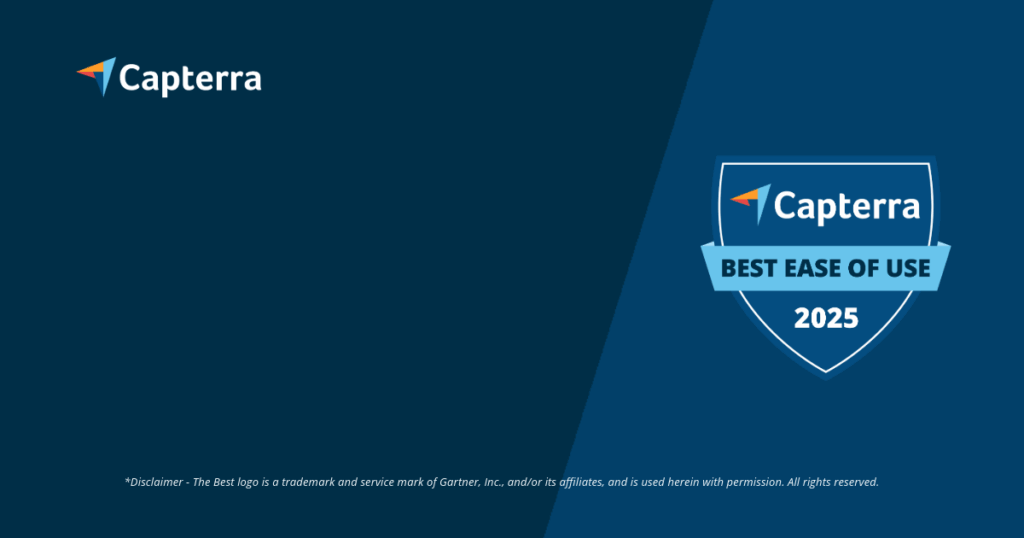Lean Construction Management: Here’s how to get your construction projects on the road to success – with us by your side!
Imagine your construction projects running like clockwork – that’s exactly what lean construction management can do for you! It’s about methodically cleaning up outdated processes and utilizing every resource optimally. In our industry, where schedules are often tight and cost pressures are high, this approach provides you with real advantages. We at Valoon GmbH are here to actively support you in implementing these smart principles in your projects. Together, we will sustainably improve communication and project management. Discover with us how you can elevate your construction projects to a whole new level of efficiency through process optimization with software support by lifting your building projects to a whole new level of efficiency. For us, this management approach means focusing entirely on what truly creates value and systematically eliminating all forms of waste – no matter where they occur in the construction process.
- Optimizes established processes and resource utilization.
- Provides real advantages in tight schedules and high cost pressures.
- Focused on creating real value and systematically eliminating waste.
- Sustainably improves communication and project management, supported by Valoon GmbH.
What exactly is Lean Construction Management?
This management approach is basically the smart transfer of proven lean principles – you might know them from the automotive industry, keyword Toyota Production System – to the specific needs of our construction sector. The big goal? The optimization of the entire value chain, from the initial idea in planning to the final handover and even beyond. It’s about structuring construction projects so they become more efficient, cost-effective, and higher in quality. Every decision and process step is centered around maximizing value for the customer. And it’s very important: continuous improvement, also known as Kaizen. This is a cornerstone of this approach and means that we constantly evolve and adapt methods. Curious? Learn more about Lean Management methods in construction and how these can transform your projects.
Why is Lean Construction Management so crucial for your company?
Let’s be honest, the construction industry faces several challenges: Projects are becoming increasingly complex, skilled workers are rare, quality standards are rising, and competition is fierce. This is where the lean construction management offers a strategic lever to successfully navigate these storms. By implementing lean methods, you can not only significantly reduce costs and shorten project durations, but also noticeably increase customer and employee satisfaction. It fosters a transparent and collaborative working style that reduces errors and boosts productivity. A cleverly applied approach is therefore a real engine for the long-term success and competitiveness of your company in the construction sector. Together, we can shape the future of construction with Lean Construction today.The five core principles of Lean Construction Management: How to get the most out of your projects
The whole philosophy behind the lean construction management is based on five fundamental principles. When applied consistently, these lead to significantly better project outcomes – as we see time and again. These principles serve as a compass that helps us focus on what is essential and systematically eliminate waste. They form the foundation for lean and efficient construction execution. At Valoon GmbH, we have deeply integrated these principles into our software solutions. Why? To make it as easy as possible for you to implement them in your daily work and to elevate your construction project management with software to the next level.
- Define value (Value): Understand precisely what matters to the customer, such as adherence to schedules, budget compliance, and quality.
- Analyze value streams (Value Stream): Identify all processes that create value, maximize value-adding activities, and eliminate waste.
- Ensure a steady workflow (Flow): Create a smooth, uninterrupted workflow through coordination and proactive planning.
- Apply the pull principle (Pull): Request services and materials as needed (Just-in-Time) to reduce overproduction and storage costs.
- Strive for perfection (Perfection): Continuous improvement (KVP/Kaizen) through constant questioning and optimizing processes.
1. Precisely define value from the customer’s perspective (Value)
The crux of the matter: We must first understand exactly what genuinely matters to the customer. It’s not just about the finished building itself but also aspects like adherence to schedules, budget compliance, quality, and functionality. When we clearly define this customer value right at the beginning of a project, we can align all further steps accordingly and avoid unnecessary features or process loops. Regular discussions with the customer and open dialogue are invaluable, as explained in the article about
2. Analyze and optimize the value stream (Value Stream)
Once the value is established, we next scrutinize the value stream. These are all processes and activities necessary to actually generate the defined customer value. Our goal here: maximize value-adding activities and minimize or ideally eliminate all that doesn’t bring value (i.e., waste). This requires a detailed examination of all operations – from planning through material procurement to execution on the construction site. And this is where lean construction management optimizing the construction process through software Optimierung des Bauablaufs durch Software can make a huge difference.
3. Ensure a continuous workflow (Flow)
The flow principle focuses on establishing a smooth and uninterrupted workflow. Bottlenecks, waiting times, and constant interruptions are typical forms of waste that we must systematically address. This can only be achieved with excellent coordination among the trades, proactive planning, and the ability to respond flexibly to unforeseen circumstances. Once the flow is right, it leads to shorter turnaround times and higher productivity. The
as described by BauMaster puts a strong emphasis on this.
Unlike traditional push systems, where materials and labor are often provided on speculation, we rely here on the pull principle, based on actual demand. Specifically, this means: Services and materials are only requested and delivered when they are genuinely needed (Just-in-Time). This not only reduces inventory levels and avoids overproduction but also lowers capital holding costs. The control is done by the subsequent process step or directly according to the customer’s demand – thus utilizing resources much more efficiently.
5. Striving for perfection through continuous improvement (Perfection)
The fifth and perhaps most important principle in the lean construction management is the relentless pursuit of perfection through continuous improvement (KVP or Kaizen). This means that we constantly question achieved standards and seek ways to make our processes even more efficient, faster, and of higher quality. This requires a genuine learning culture and openness to change, where mistakes are seen as opportunities to improve further. Involving all employees in this process is the key to long-term success. Thealso emphasizes the importance of KVP.
Tangible and effective: Methods and tools for your successful Lean Construction Management lean construction management Okay, the principles sound good – but how do we put all of this into practice? Fortunately, there are a variety of proven methods and tools for daily work with effective construction management software. These tools are invaluable for firmly anchoring the lean principles in the everyday project routine and truly achieving the desired improvements. The trick is to select and adapt the right methods for the specific requirements of each project. This is where our
effective construction management software
comes into play: It is designed to digitally support many of these methods and noticeably ease their application in daily practice. tiered planning from rough scheduling to detailed weekly and daily planning the reliability of commitments increases enormously, and processes become much more predictable. Regular coordination rounds and a consistent analysis of plan deviations are integral parts of the LPS and drive continuous improvement.
Taktplanung und -steuerung für repetitive Prozesse
Especially in construction projects where many activities repeat – think, for example, of residential construction – takt planning and control serve as a genuine efficiency booster. Similar to an assembly line in industry, we divide work into clearly defined cycles. The different trades (our ‘Trade Train’) move through the individual areas (e.g., apartments) in a predetermined sequence and time. The result: a stable and rhythmic construction process, reduced waiting times, and optimized resource use in the spirit of the lean construction management. Visualization of these cycles plays a critical role in keeping everything in view.
Target Value Design (TVD) for cost-optimized value creation
With Target Value Design (TVD), we pursue an exciting approach: The project is oriented from the start toward a target value (Target Value) – usually based on the customer’s target costs. Instead of planning traditionally first and then checking what it costs, we develop the design in such a way that the target costs are met , without compromising the desired functionality and quality. This, of course, requires very close collaboration among all stakeholders from the very early stages of the project and continuous cost control. Here, the, ohne dabei Kompromisse bei der gewünschten Funktionalität und Qualität zu machen. Das erfordert natürlich eine super enge Zusammenarbeit aller Beteiligten schon in den ganz frühen Projektphasen und eine kontinuierliche Kostenkontrolle. Hier zeigen sich auch die advantages of construction management software in transparent data management are particularly evident.
Further supportive lean tools that ease your daily work
In addition to LPS, takt planning, and TVD, there are several other useful tools that can support your construction projects:
- Kanban: A fantastic visual control system that limits workflow and makes bottlenecks immediately visible. Tasks are simply noted on cards and then move through various status columns (e.g., ‘Open’, ‘In Progress’, ‘Completed’).
- 5S Method: With this, you bring order and system to every workplace. The goal: Reduce waste caused by searching or unnecessary travel (Sorting, Systematizing, Cleaning, Standardizing, Practicing Self-Discipline).
- Value Stream Analysis (Value Stream Mapping): A method to visualize all process steps. This allows for quickly recognizing which activities create value and which do not, and revealing improvement potentials.
These tools, often cleverly supported by construction management software, help us to make the principles of lean construction management tangible and actionable in everyday practice.Successfully implement Lean Construction Management: How to master strategies and challenges
Implementing lean construction management is far more than just applying a few new tools – it is a genuine cultural change that requires full commitment and a clear strategy. But the effort is worthwhile: A successful implementation leads to sustainable improvements in efficiency, quality, and collaboration. It is important to prepare this process well and proactively remove potential stumbling blocks. We at Valoon GmbH are here to assist you with our expertise and software solutions, so you can optimally utilize your construction management software for project success. Key strategies for a sustainable implementation that truly pays off
Schlüsselstrategien für eine nachhaltige Implementierung, die wirklich Früchte trägt
To ensure that the implementation of this approach is successful for you, the following strategies have proven effective in practice:
- Top management commitment: It doesn’t work without it! Support and active exemplification of the lean principles by top management is absolutely essential.
- Employee training and empowerment: Invest in your employees! Ensure they understand and can apply the principles and methods. Give them the opportunity to actively participate in improvement processes.
- Start with pilot projects: Start small. Select pilot projects to gain initial experience, make successes visible, and step by step adjust the process.
- Transparent communication: Talk to each other! Communicate the goals, progress, and also the challenges of the change process openly and regularly to all stakeholders.
- Establish a culture of error: Create an environment where mistakes are viewed as learning opportunities. Speaking openly about them helps to continuously improve processes.
Typical challenges and how to overcome them together
Of course, challenges can arise in the implementation of this management approach – that’s perfectly normal. A common topic is the resistance to change, as established working methods and thinking patterns need to be broken down first. A lack of understanding of lean principles or insufficient support from middle management can also be hurdles. To master these, it is of utmost importance to involve all stakeholders early and comprehensively . Clearly communicate the advantages, offer continuous support, and celebrate initial successes together. Patience and perseverance are required here because a true lean culture takes time to grow. The use of a software for process optimization in construction can help anchor new processes faster.
The role of digital tools: How we at Valoon support you
Digital tools play an increasingly important role in successfully implementing and sustainably applying lean construction management . Modern software solutions, like those we develop at Valoon GmbH, can help make lean methods much more efficient. They enable improved communication and collaboration, transparent data management, and real-time monitoring of processes. A concrete example: Our platform significantly simplifies digital recording on site by utilizing messengers like WhatsApp. We automatically convert this often unstructured data into usable project data. This reduces administrative effort and ensures that information is quickly and accurately available where it is needed. The integration of project management software for construction is, in our view, an important step toward digitizing your lean processes.What it ultimately comes down to: Measurable benefits from Lean Construction Management
When you apply lean construction management consistently, you will notice a range of positive effects that directly influence your project success and the competitiveness of your company. And these are not just theoretical benefits, but real advantages that can be measured and demonstrated in practice. From shorter project durations to happier customers – implementing lean processes truly pays off. Our goal at Valoon GmbH is to make exactly these benefits accessible to your company with our solutions and to optimally support your projects.
- Project efficiency and throughput times: Significant increases in efficiency and reductions in project times through elimination of waste.
- Cost savings and profitability: Substantial reductions in costs due to less material waste, optimized processes, and error avoidance.
- Quality and customer satisfaction: Sustainable improvement of construction quality and increased satisfaction among customers through standardized processes and customer focus.
- Collaboration and engagement: Promotion of team spirit, improved problem-solving skills, and higher employee engagement through involvement in improvement processes.
Improved project efficiency and shorter throughput times – achieving more in less time
One of the biggest advantages of this approach is the significant increase in project efficiency.By eliminating waste like waiting times, unnecessary transports, or rework, we optimize and accelerate workflows. Methods like the Last Planner System and takt planning ensure a smoother process flow and better coordination among trades. The result: shorter overall project durations and faster value creation. The focus on value-adding activities ensures that your resources are optimally utilized.
Significant cost savings and higher profitability – good for your budget
By reducing waste and increasing efficiency, substantial cost savings can be achieved. lean construction management Less material waste, lower labor costs due to optimized processes and minimization of costly errors and rework – all of this directly contributes to improving your profitability. The pull principle helps, for example, to lower inventory carrying costs, and Target Value Design ensures that projects are planned cost-oriented from the outset. These aspects of the approach have a direct positive impact on your operational results..
Enhanced quality and increased customer satisfaction – because that’s what matters
While cost reduction and efficiency enhancement are essential goals, this should never come at the expense of quality – quite the opposite! Standardized processes, clear responsibilities, and early error detection significantly improve construction quality.A consistent focus on the defined customer value ensures that the expectations of your customers are not only met but often exceeded. Transparent processes and timely completion lead to a higher customer satisfaction.And this, in turn, has positive effects on repeat orders and the good reputation of your company. A well-implemented approach is therefore a genuine guarantee for satisfied customers.
Improved collaboration and employee engagement – because teamwork counts
Lean Construction Management fosters a culture of collaboration and mutual respect – this is felt. Methods such as the Last Planner System require close coordination and communication among all project stakeholders, from planners to on-site craftsmen. The result is a stronger team spirit and improved problem-solving skills.When employees are involved in continuous improvement processes, it boosts their engagement and motivation. When they see that their ideas and experiences are valued and lead to real improvements, they feel more aligned with the goals of the lean construction management and actively contribute to shared success.Digitization in Lean Construction Management: How BIM, mobile apps, and software make a difference
Digitization is a true turbocharger for effectively implementing the principles of lean construction management . Modern technologies enable much better networking, more transparent processes, and decisions based on solid data. The integration of digital tools is therefore a crucial step in fully harnessing the benefits of this approach and preparing your company for the future. We at Valoon GmbH focus precisely on this: We offer you one of the ‘easiest project management software in the world’ that transforms your everyday messenger communication into valuable, structured project data.
Building Information Modeling (BIM) as a strong data backbone
Building Information Modeling, or BIM, is a method that allows us to plan, execute, and manage buildings optimally – all with software support. All relevant building data is digitally modeled, combined, and recorded. In the context of this management approach, BIM serves as a central, consistent data source for all project participants.It enables much better visualization, coordination, and even simulation of construction processes. Possible conflicts and errors can thus be detected and resolved early, leading to less rework and lower costs. The integration of BIM into lean processes, as aimed for in the
, is an important trend that we are carefully observing.
Mobile applications for more efficiency directly on site lean construction managementMobile applications have revolutionized the way work is done on construction sites and are an incredibly valuable tool for the . They enableThe digital capturing of data, for instance, for daily construction reports, photo documentation, or defect lists, becomes much simpler and faster. Our solution at Valoon GmbH takes a special approach: We use common messenger services like WhatsApp so that your field staff can capture data in their familiar environment. We then convert this information directly into structured project data for your construction projects. This reduces training effort and increases acceptance – a real plus!
Project management software as your control center
Comprehensive project management software that is specifically tailored to the needs of the construction industry and the principles of lean construction management serves as the control center for your lean construction projects. Such systems support you in planning, executing, monitoring, and evaluating all project activities. They promote collaboration through shared platforms, improve transparency through clear dashboards, and automate tedious routine tasks. Valoon GmbH offers you a cloud-based SaaS platform that intelligently combines central task management, smart reporting, and cloud-based project storage to optimally support your projects. We are convinced: The right construction project management software is crucial for your success.
The key benefits of digital tools in Lean Construction Management at a glance
The use of digital helpers in this area brings a wealth of advantages that help you optimize your projects:
- Real-time data availability: All participants have access to current information at any time. This enables faster and more informed decision-making.
- Improved communication: Digital platforms make information exchange and coordination between office and construction site, as well as among different trades, child’s play.
- Reduced administrative effort: Automated processes and digital documentation mean less paperwork and more time for the essentials.
- Higher transparency: Project progress and potential deviations become visible early. This allows you to act proactively.
- Better traceability: All changes and decisions are digitally documented. This supports quality assurance and helps learn from each project.
Lean Construction Management live and in color: Success stories and what we can learn from them
The theoretical benefits of lean construction management sound quite convincing already, but how does it all look in actual construction practice? We can tell you: Numerous construction companies worldwide have already successfully implemented lean principles and achieved remarkably impressive results. These case studies and practical examples provide us with valuable insights and clearly show: this approach is not just a fancy concept, but a proven method to enhance one’s competitiveness. By closely examining such projects, we can identify success factors and better understand typical challenges – and you will benefit from this!
Analysis of successful lean projects in the construction sector: What do the best do right?
Successful projects in the area of lean construction management often have one thing in common: a consistent application of the Last Planner System. and a strong, collaborative culture within the team. For example, companies report a reduction in project duration of up to 30% and a significant decrease in construction costs—simply by minimizing waste. A key factor is the early involvement of all trades in the planning process to avoid annoying interface issues from the start. This shows impressively that projects that rely on Lean principles early on are often completed on time and within budget. Consistent use of visualization tools and regular coordination meetings are also real success guarantees in this area.
Lessons Learned: Learn from the Best for Your Own Lean Construction Management
From the analysis of successful projects, we can derive important insights, known as lessons learned, that can help you in your own implementation. One central learning for us is the necessity of a cultural change – Lean is not just a set of tools but a complete way of thinking. The continuous training and coaching of employees are therefore absolutely crucial. Equally important is the adaptation of Lean methods to the specific circumstances of your own company and your respective projects. There is no universal solution that fits all. TU Graz emphasizes in its
the importance of a holistic approach that also includes soft skills such as employee management—a point we can only underscore.
The Role of Valoon GmbH: How We Support You in Your Lean Initiatives lean construction management We at Valoon GmbH know the challenges that can arise when introducing and implementing Lean Construction Management.Our software was precisely designed for this purpose: to support you by simplifying data collection and optimizing the flow of information.A Look Ahead: The Future of Lean Construction Management and What the Industry Can Expect
Das lean construction management is not a rigid affair but is constantly evolving—which we find particularly exciting! Driven by technological advancements, changing market demands, and a growing awareness of sustainability, clear trends are emerging that will significantly shape the future of construction. Companies that are aware of these developments early on and integrate them into their strategies secure crucial competitive advantages. At Valoon GmbH, we of course monitor these trends closely to continuously optimize our software solutions and always provide you with innovative tools for your projects.
Increasing Digitalization and Automation as a Driver of Change
Digitalization is one of the strongest drivers for the further development of lean construction management. Technologies like Artificial Intelligence (AI), the Internet of Things (IoT), and robotics open up fascinating new possibilities for process optimization and automation. For example, AI can help analyze huge amounts of data to recognize patterns and make more precise predictions for project planning. IoT sensors can monitor the condition of machines or material flows in real-time. And the automation of routine tasks relieves your specialists and reduces sources of error. These digital tools will make this management approach even more data-driven and efficient in the future, as well as the exciting developments around
Stronger Integration of Sustainability Aspects – For a Greener Future
The topic of sustainability is gaining more and more importance in the construction industry—and that is a good thing! This management approach already provides an excellent basis for supporting ecological goals through its clear focus on resource efficiency and waste avoidance. In the future, the integration of sustainability aspects into Lean methods will be even more emphasized. This ranges from the selection of environmentally friendly materials to optimizing energy efficiency during the construction process and planning for later reuse or recycling of components (keyword Circular Economy). A holistic approach will therefore also make an important contribution to a more sustainable construction industry.
Focus on Optimizing the Entire Value Chain – Thinking Outside the Box
While the lean construction management has traditionally focused strongly on optimizing processes directly on the construction site, the focus will increasingly shift to optimization of the entire value chain . This means even closer cooperation and integration of planners, suppliers, subcontractors, and of course the client. Models like Integrated Project Delivery (IPD) promote collaborative cooperation and collective responsibility for project success. Optimizing interfaces and the flow of information across company boundaries will be a decisive factor for successful construction in the future. This is a point that we believe is rightly emphasized.Ready for Change? Your Next Step with Lean Construction Management and Valoon
As you can see, the lean construction management provides a truly robust framework to make your construction projects more efficient, cost-effective, and of high quality. The consistent application of Lean principles, cleverly supported by suitable methods and digital tools, is the key to success from our perspective. Valoon GmbH is your partner when it comes to optimizing communication and project management in your construction projects through simple and innovative software solutions. We are excited to help you fully leverage the potential of this approach.
Implementing this management method is a true investment in the future viability of your company. It enables you to meet the increasing demands of the market not only but also gain a significant competitive advantage. It’s best to start today by streamlining your processes and sustainably increasing the efficiency of your projects.
If you are now feeling that you are ready to take your construction projects to the next level and take advantage of the many benefits, then do not hesitate to contact us. We will be happy to advise you and show you concretely how our software solutions can support you in achieving your goals. Request your individual consultation now and start with us into a more efficient future! Register for a free initial consultation and learn firsthand how Valoon can optimize your projects.
What is the core benefit of Lean Construction Management for my construction company?
The core benefit is the increase in efficiency und reduction of costs through optimized processes and the avoidance of waste, which leads to more timely project completion. führt.
How does Lean Construction Management specifically help reduce costs?
Through methods such as the pull principle (lower inventory costs), target value design (cost-oriented planning), and the reduction of rework significant savings on material and labor costs. Is the implementation of Lean Construction Management complicated for field staff?.
Not necessarily. Solutions like Valoon GmbH focus on
simplicity , by integrating, for example,familiar messenger services like WhatsApp, thereby increasing acceptance among field staff and minimizing training effort. What role does software play in the implementation of Lean Construction Management?
Software like that of Valoon GmbH
digitalizes and simplifies Lean methods. It converts, for example, unstructured communication intousable project data and improves the flow of information between the construction site and the office. What is meant by the Last Planner System (LPS) in Lean Construction Management?.
The LPS is a collaborative planning method that
actively involves executors (e.g., foremen) to increase thereliability of commitments and make construction processes more predictable. Can Lean Construction Management also improve communication in the project? Yes, Lean Construction Management promotes
transparent communication and collaboration.
Digital tools support this by allowing central access to informationand reducing misunderstandings. zentralen Informationszugriff ermöglichen und Missverständnisse reduzieren.
How quickly can I expect results when I implement Lean Construction Management?
Initial improvements, such as better planning reliability,can often become visible after a short time. Significant effects like project time reductions of up to 30% require consistent implementation.








